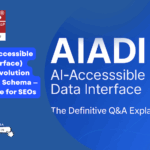In the early 2000s, we learned to “Google it.” Knowing how to search effectively using the right keywords became an essential digital skill. Today, we’re witnessing the next evolution in digital communication: learning how to “prompt” an AI.
Welcome to the age of Prompt Engineering—a skillset that’s rapidly emerging as the cornerstone of effective interaction with AI systems. Much like search literacy revolutionized how we access information, prompt literacy is reshaping how we communicate, create, and make decisions in a world increasingly shaped by artificial intelligence.
But Prompt Engineering is more than just a tool for productivity—it’s a sustainability skill, a cognitive discipline, and a new mode of digital etiquette. In a time when each interaction with AI involves energy consumption (server loads, GPU cycles, data center water use), crafting precise, accurate prompts not only leads to better outputs but also minimizes the invisible cost behind the scenes.
From Search Queries to AI Prompts
For decades, we optimized our language for search engines. SEO professionals mastered keyword strategy, semantic relevance, and search intent. But interacting with generative AI tools like ChatGPT, Claude, Gemini, and Perplexity requires a different kind of language finesse.
Instead of stringing together two or three keywords, AI tools expect you to ask questions or give instructions in natural language. The more context and clarity you provide, the better the response. This shift from search query to AI prompt is not just technological—it's behavioral, even cultural.
A prompt is not just a question. It is a direction. It sets context, defines the tone, scope, and intent of what you're trying to accomplish—whether that’s generating marketing copy, summarizing a legal document, writing code, or brainstorming product ideas.
Why Prompt Engineering Matters Now
There are three core reasons why Prompt Engineering is becoming a critical skill:
- Efficiency in Output
Large Language Models (LLMs) are trained on vast corpora of human knowledge, but they don’t "know" what you want unless you guide them effectively. A vague prompt wastes time—yours and the model’s—and often leads to irrelevant, verbose, or incorrect answers. - Resource Optimization
Every AI interaction consumes energy. Data centers powering LLMs rely on electricity and, often, water for cooling. Poor prompts that require multiple corrections or reiterations multiply the energy footprint. In contrast, clear, concise prompts reduce resource usage. - Digital Communication Skills
Prompting well is a new form of cognitive empathy—how we communicate with non-human agents to get human-relevant results.
The Shift from Keywords to Conversations
- Goodbye Keywords, Hello Prompts!
Before AI: People used short, keyword-based queries like “best restaurants NYC.”
Now with AI: Users ask conversational, full-sentence questions or even give instructions:
“Find me highly rated vegetarian restaurants open past 10pm near Central Park.”
With AI tools like ChatGPT, Perplexity, and Google AI Overviews, users converse instead of search.
- Expectations of Instant, Curated Answers
Traditional Search: Users scanned through multiple links and evaluated them manually.
AI-Driven Search: People expect direct, summarized, personalized answers with sources—like talking to a knowledgeable assistant.
Example: Instead of Googling and checking several sites for “best time to visit Japan,” users now ask AI and get a consolidated answer instantly.
- Multi-Search & Contextual Discovery
Tools like Google Lens, Voice Assistants, and AI-integrated browsers support visual, voice, and contextual search.
Users can:
- Take a photo and ask: “Where can I buy this?”
- Say: “What’s this plant called?”
- Highlight text and ask follow-up questions instantly.
- AI as a Research Companion
With tools like ChatGPT Pro (web + code + data + images), people now:
- Refine queries iteratively (like in a conversation)
- Use AI to brainstorm, compare, summarize, generate ideas, or analyze content—blurring the line between “searching” and “working.”
- Personalized, Predictive Search
AI learns user behavior and preferences:
- Search is becoming proactive—AI assistants suggest content or actions before the user even asks.
- For example, Google Discover or Gemini might surface content you didn’t search for but are likely to find relevant.
- The Rise of Prompt Engineering
The better you frame a prompt, the more accurate and useful the AI-generated output.
Users are learning:
- How to ask smarter questions
- How to layer prompts to narrow down or refine output
- How to specify tone, audience, depth, etc.
- Searching is evolving into prompt crafting.
- Shift from Searching to Delegating
AI tools can:
- Book appointments
- Draft emails
- Create itineraries
- Summarize legal contracts This shifts the behavior from finding information to getting tasks done.
- Decreasing Reliance on Traditional Search Engines
People increasingly:
- Start their journey on AI tools (ChatGPT, Perplexity, Claude) instead of Google.
- Use YouTube, Reddit, TikTok, or niche apps for community-verified answers. Search is decentralizing.
What Makes a Good Prompt?
Just like good SEO copywriting has its rules, good prompting follows best practices:
- Be Specific
Instead of: “Write an article about SEO.”
Try: “Write a 500-word blog post in a conversational tone explaining the difference between technical SEO and on-page SEO.” - Provide Context
Instead of: “Summarize this.”
Try: “Summarize this article in 3 bullet points for a LinkedIn post.” - Define Output Format
Instead of: “Give me some blog ideas.”
Try: “Suggest 10 blog titles under 60 characters with a power word.” - Set Role or Perspective
Instead of: “Explain AI.”
Try: “You are a high school teacher. Explain AI with metaphors.” - Iterate and Chain Prompts
Prompting is interactive—just like a conversation.
Prompt Engineering: A Growing Profession
Courses, certifications, and job roles for Prompt Engineers are becoming mainstream. Titles include:
- AI Prompt Strategist
- Generative Content Engineer
- Prompt Developer
Platforms now offer structured courses for specific use cases. Startups and agencies are hiring dedicated Prompt Engineers to reduce hallucinations and fine-tune AI tools.
This isn’t just a trend. It’s a professional competency.
Implications for SEO and Digital Marketing
Search professionals are seeing the ripple effects of AI-driven search. With tools like Google’s AI Overviews and Perplexity’s answer-first approach, traditional search behavior is evolving.
Prompt Engineering enables marketers to:
- Generate structured content
- Craft personalized responses
- Train teams on AI tools
Prompts are becoming the new queries. Soon we may track prompt performance the way we do CTRs and bounce rates.
Toward a More Ethical and Sustainable AI Future
AI isn’t going anywhere. But how we use it matters.
By learning how to write good prompts, we:
- Reduce digital waste
- Increase productivity
- Improve accessibility
- Encourage responsible AI use
Prompt literacy contributes to a sustainable AI future.
Prompting as a Life Skill
Prompt Engineering isn’t just for marketers or developers. It’s becoming a life skill.
In the coming years, the ability to interact intelligently with AI will determine who creates, who leads, and who saves time.
Whether you’re a student, CMO, creator, or nonprofit leader, prompt literacy is your passport to the future of work and digital engagement.
As the digital landscape transitions from traditional search engines to AI-powered engines, prompt engineering is rapidly emerging as the essential communication skill for the future—not only to obtain more accurate and relevant responses, but also to engage with technology in a more energy-conscious and resource-efficient way.
Each interaction with an AI model taps into powerful data centers, drawing on significant amounts of electricity and water to process and deliver answers. Poorly crafted prompts that lead to vague, incomplete, or repeated queries increase this environmental footprint unnecessarily. In contrast, well-constructed prompts streamline the exchange—minimizing computational waste, reducing server loads, and conserving the infrastructure resources that power AI systems.
Prompt engineering, then, is more than a productivity tool—it’s a sustainability practice. It blends the precision of science with the nuance of human expression, allowing us to interface responsibly with increasingly intelligent systems.
We’ve mastered keyword research—now it’s time to master prompt engineering, the skill that powers meaningful conversations with AI. From keywords to prompts—search is changing, and so must we. This emerging skill is no longer optional—it’s essential for a digital world striving to be smarter and greener.
August 20, 2025







